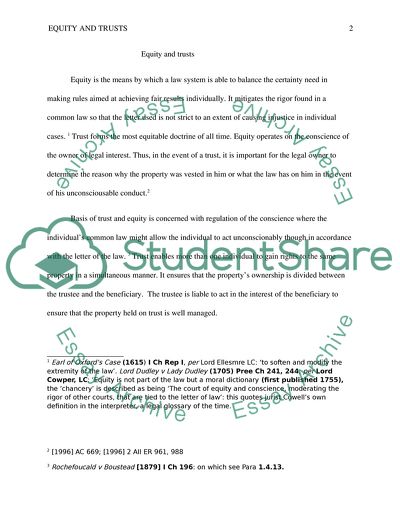Cite this document
(Equity and Trusts Essay Example | Topics and Well Written Essays - 1500 words - 9, n.d.)
Equity and Trusts Essay Example | Topics and Well Written Essays - 1500 words - 9. https://studentshare.org/law/1857522-equity-and-trusts
Equity and Trusts Essay Example | Topics and Well Written Essays - 1500 words - 9. https://studentshare.org/law/1857522-equity-and-trusts
(Equity and Trusts Essay Example | Topics and Well Written Essays - 1500 Words - 9)
Equity and Trusts Essay Example | Topics and Well Written Essays - 1500 Words - 9. https://studentshare.org/law/1857522-equity-and-trusts.
Equity and Trusts Essay Example | Topics and Well Written Essays - 1500 Words - 9. https://studentshare.org/law/1857522-equity-and-trusts.
“Equity and Trusts Essay Example | Topics and Well Written Essays - 1500 Words - 9”. https://studentshare.org/law/1857522-equity-and-trusts.


